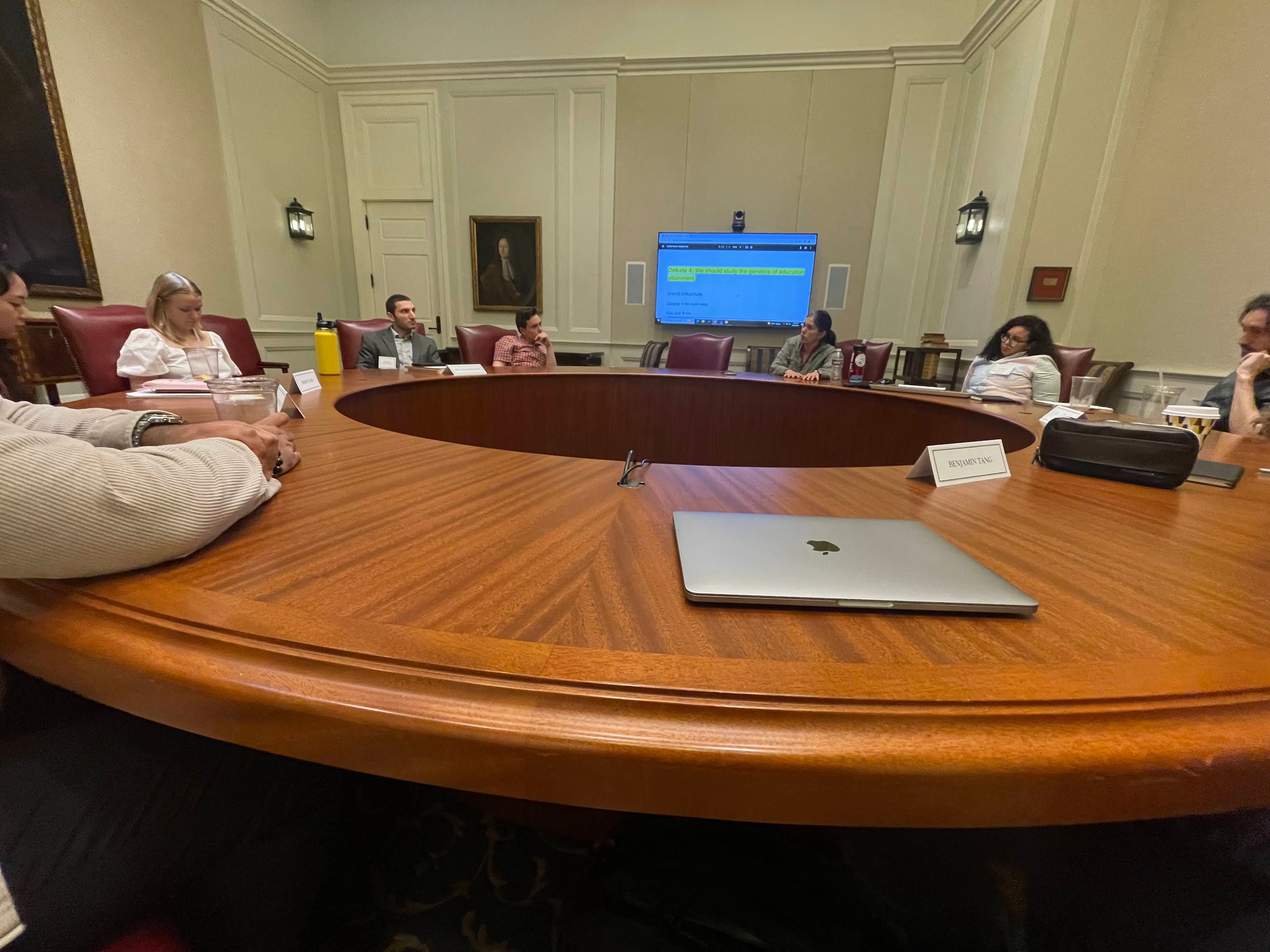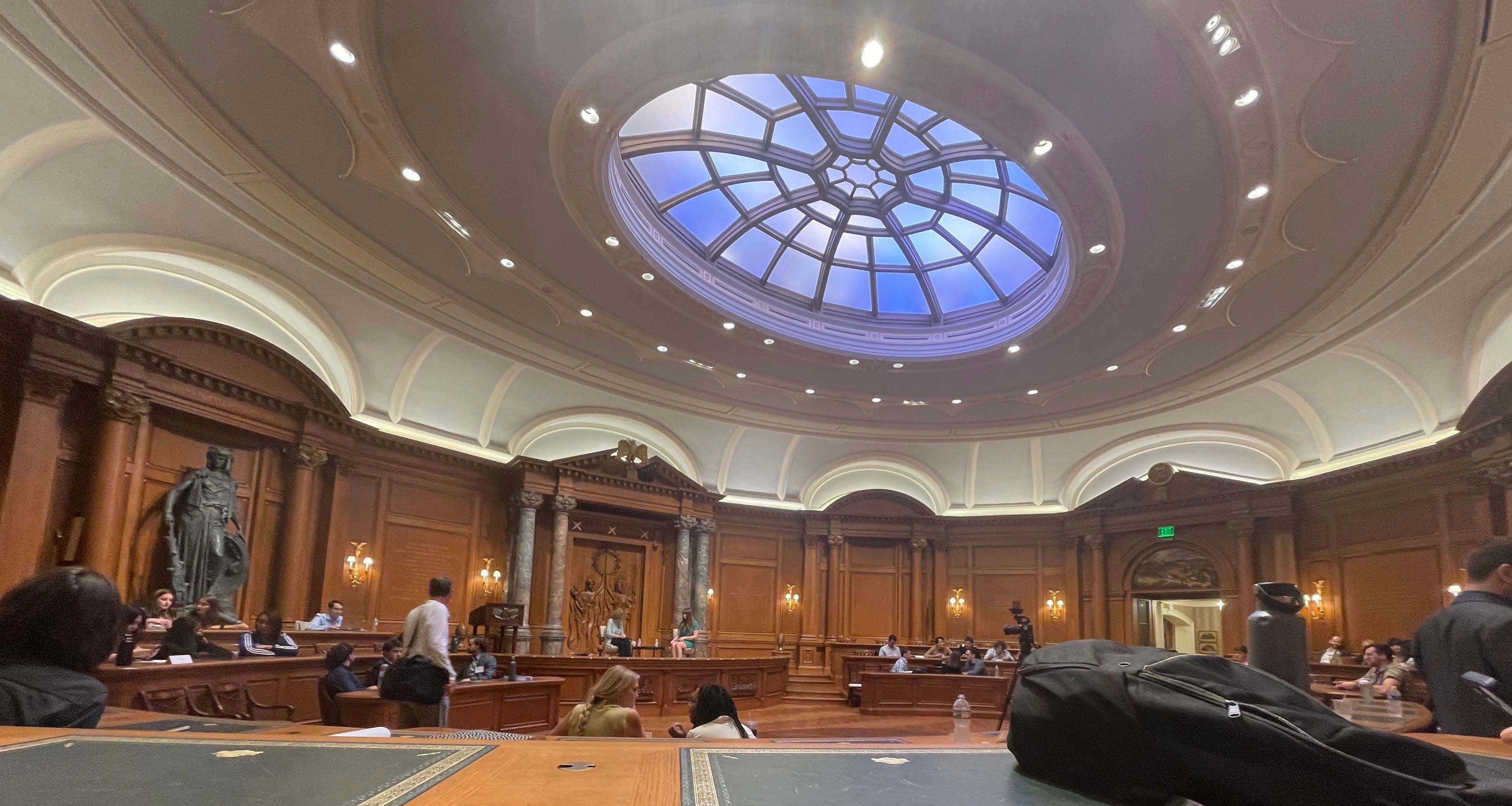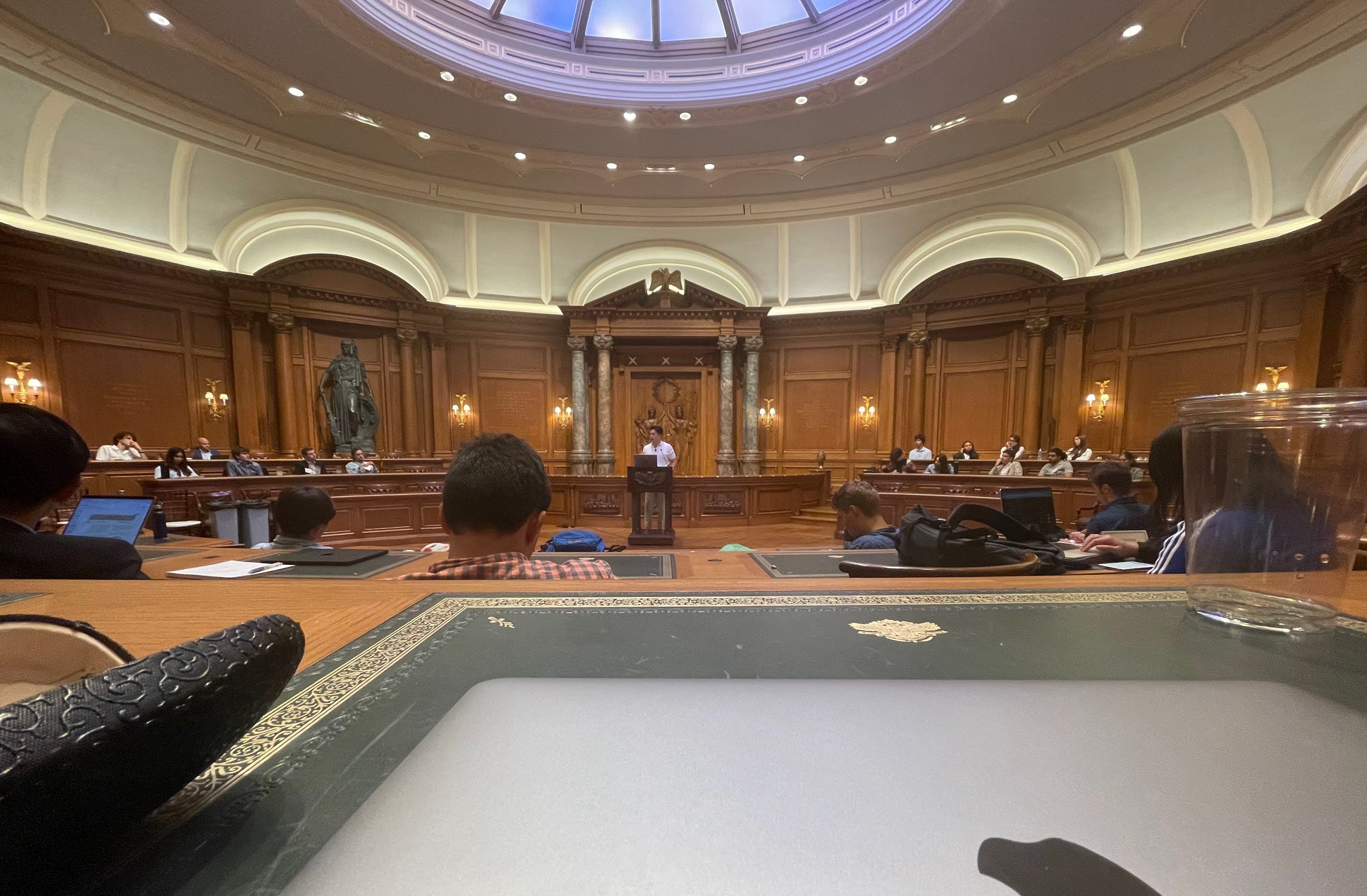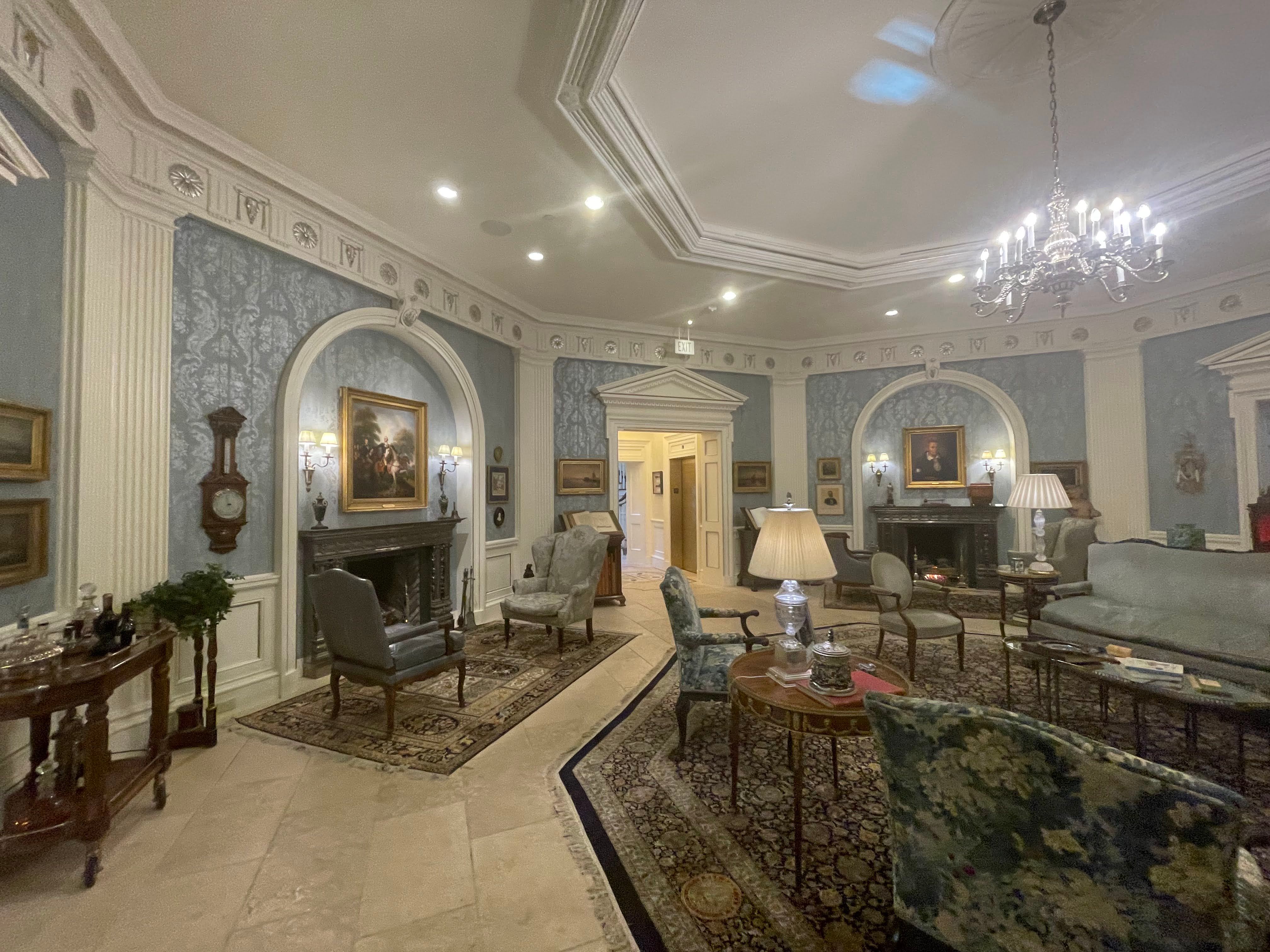Background
In short, this program with UATX’s Forbidden Courses was great, and if it was still running I would recommend it regardless of your background.[^10] You’re at the very least going to come away having learned something about society and people. I don’t know if they’re running this program anymore, but check out their undergraduate program or postgraduate fellowships if you’re interested.
[^10]: I think a big difference is that people actually went there for learning, unlike undergraduate courses at most colleges. I talked with a friend recently and he said that people in his graduate International Affairs program are actually passionate. Maybe undergrad is just cursed?
I would say it leans conservative (though not for the people who took the science course with me, who seemed to have a different way of thinking) and has an overrepresentation of history and philosophy majors with a scattering of computer science. There are a lot of thinkers and people who write as their preferred media, such as on Substack. The caliber of students is high.
Things Learned
I took a class on evolutionary biology with Luana Maroja. Here are some surprising points:
- Testosterone stops height growth
- Puberty and menarche have been decreasing for some decades…
- Males are in danger because ‘XY’ means bad genes on the X are overrepresented (greater male variance?)
- X chromosome in men comes more from the mother.
- Breastfeeding suppresses new babies
- More risk of danger from stepfather (huge percentage)
- Kill baby -> no breastfreeding -> new baby
- Menopause only exists in whales and humans
- Sunlight depletes B vitamins
- Animals in islands shrink
- Fertility medicines cause multiple babies
- Haldane’s rule: when hybridizing, the sterile sex is XY or ZW
- ABBA-BABA test for showing we have Neanderthal DNA
- Statistical test to show lineages
- Cystic fibrosis may protect against typhoid fever
- FoxP2 governs for speech
- More amylase genes in starch eating populations
- (take that, keto)
- Spleen holds oxygenated blood (Bajau people & divers)
- Whales are a hoofed animal
- Cheetahs don’t have an immune rejection to grafts
- SNPs = Single Nucleotide Polymorphism
- SNP chips are used to detect mutations
- Fertility medicines cause multiple babies, increasing the chance of retardation
- Correlation between older brothers & gayness
- No correlation with adoption
- Heritability values depend on environment
- Heritability increases with age
- No heritability means no selection
- Heritability is kind of an unintuitive concept
- Women tend to have slightly lighter skin than males because of Vitamin D & bone growth in hips

I enjoyed the class a lot, though I found debating challenging as I had never done that much. A lot of it revolves around keeping multiple threads in your mind and sounding reasonable when speaking. Prof. Maroja was a great teacher and had these interactive questions embedded in the PPTs.
Perceptions of People
General Takeaways from people I saw or talked to briefly, most of which took place in this cool circular room:

Jemima Kelly of the Financial Times (not a speaker but just visiting and reporting):
- her article here, I think she did a great job:
- chose a salad for her meal, we exchanged concerns about overly processed food
- thought: people think a salad is healthy which is basically water and no nutrition rather than red meat, raw milk, bones, etc.
- surprisingly chose to walk on hot Dallas summer day!
Guillermo Rauch of Vercel:
- sharp, well-dressed, lots of black
- seems to be around my height (170cm or so) so I’m wondering how he finds pants
- gave a good talk where he was able to balance the technical with the useful
- spoke on the need to return to office rather than remote
- wondering why, and is he speaking because CEOs of companies have found it’s beneficial for XYZ reason or from personal experience? for example does the “CEO” class network together and come to the same conclusion?
- loves twitter/X. I could tell because of the way he laughed about twitter, in response to a question as if he had an addiction on how much he uses it
- X is pretty good for following talented people actually
- mentioned the importance of symbolic systems (stanford influence?)
- mentioned importance of web vitals to my question of what tools to use. I did see him post a tweet using this extension
- I didn’t try to network because I believed if I did good work, I would be in a good place. And I’m not good enough yet.
Winston Marshall of Mumford & Sons:
- could speak about personal experiences with Uyghur people in London and their cause while not generalizing to geopolitics, an area he’s not familiar with.
- it’s really valuable for people to say they don’t know something imo
Johnathan Bi:

- a great speaker, clearly talented and prepared
- spent a lot of time hanging out with Mark Lilla
- has a special way of acting, talking, and even drinking from a water cup that gives a certain impression
- thought: is this common for people at a certain social level or is it just what he likes to do?
- other theory: distinguished acting, like a military walk, shows a higher level of coordination, precision, and ability. think about someone who takes out the trash, and they slam the trash down onto the floor. this is like the opposite of that.
- introduced ‘Mimetic Theory’
Harlan Crow:
- had some friends around who looked like guys at the golf course and he was showing them around his business park
There were a few other speakers such as Nadine Strossen, Bari Weiss, and maybe a few I’m forgetting but these are my main takeaways. Most of the speakers came in person, some called in.
Miscellaneous
Some things I overheard. I’ll let you think yourself on these:
- From a freshman or someone entering college: “I have a friend, and he goes to Harvard. My other friend goes to Yale.”
- From another freshman to an one of the speakers, who seemed woefully unprepared: “No, I think you’re wrong about AI”
- “Y Combinator is like a random walk, and you randomly walk into finding product market fit”
- An entire conversation late at night about some readings that didn’t make any sense to me
- When some people talk at a high level, you know they’re talking about something specific
- When literature people talk at a high level, is this expertise I’m unable to see, or just bs?
- “Harlan Crow has a mansion with each room decorated using a different theme”
- “COVID was caused by eating bats” – Michael Shellenberger (he was democratic before 2022 and said he basically lost all his friends–it seems like he had a huge personality change. brain tumor?)
Some topics I had never considered:
- Cartesian dualism
- Mimetic theory
- When British politicians read the FT, they actually use that and possibly only that to inform their own opinion
- Philosophy majors basically take discrete math
- History is a very important subject
Some things I personally noticed:
- American food at cafeterias everywhere tends to be the same! Old Parkland business park was the same as that of NCR and the same as that of Georgia Tech and Georgetown. The latter two colleges also use the same cups. This is likely because they use the same providers such as Sodexo, Aramark, etc.
- Independent restaurants are regionally different, but even Chinese and Mexican restaurants are the same idea copy-pasted. See the book ‘Xi’an Famous Foods’ for a discussion of Chinese-language newspaper and restaurant communities along the east coast. Immigrants come into the country, learn how to build a restaurant, and get sent to a place with none of that type of restaurant. I experienced this in New Bremen, Ohio.
- Americans think their food is natural, but Germans would complain about the lack of sliced meats such as prosciutto, speck, mortadella, etc. when living in the US. Chinese people complained about the quality of food overall here.
- I don’t think many Americans realize just how differently they think of food because the idea of ‘food’ is a brand such as Doritos, Goldfish or a ‘constructionist’ food such as a Sandwich or PBJ. This is a modern phenomenon, whereas Americans used to plant thousands of unique species of apple trees.
- There are many deep and rich food cultures including things such as Texas BBQ, Louisiana Gumbo, New England Clam Chowder, Cornbread, and so on, but we’ve lost much of this due to the modern world (which is a global phenomenon).
- No mention of fermentation, raw dairy, seed oils, or any of that during my time here, but I also didn’t socialize that much comparatively speaking and it seemed like food was not the main priority on people’s minds.
- Texas sun really wrecks the skin of people who live there. You can see it in people in their 20s.
- Naturalism is how I best view the world: excessive tanning is not natural for many Americans because they are descended from Europeans at around 45 degrees latitude (Canada/northeast/midwest/level). Wisdom teeth are natural and should not be removed.
- I felt a bit friendlier with the kitchen staff and taco truck workers than others, but I don’t know if that’s just me or I didn’t notice other people being friendly.
- I could tell a lot of people there came from good families, and also the assumptions of certainty that come with that
The hotel (Hilton Anatole) was not the same fit of the furnishings, the room arrangements, and so on compared to hotels I’ve stayed at in DC and Frankfurt Gateway Gardens (the airport hotel station). My impression is that things in Texas are needlessly large and low quality, aka bigger is not better. This naturally will read a bit off because people like to hear the positive side of things, but it’s an analogy similar to how someone in a well-off, pleasant suburb isn’t bothered by automobile pollution and low quality things because for them, it’s only temporary. My gut feeling based on this one data point is that migration to Texas is oversold and overstated. Of course, this is only one city in Texas. I have no idea how this might generalize to Austin, for example.
Something that people remarked on was that Old Parkland had indoor fireplaces in the middle of summer. To be fair, we did need it–the AC was very cold. I don’t know, maybe it’s an aesthetics thing? I heard the white house has indoor fireplaces on all the time as well. It’s like when people in high American society always wear a tuxedo to formal events–it’s as conventional as eating rice out of a bowl rather than a plate.

I think inner beauty of the Old Parkland business park against Dallas, an unforgiving suburban wasteland, is a stark reminder of how elites should not insulate themselves from the greater community. If you read another FC participant’s post, he’ll talk from a perspective that emphasizes prestige of institutions and people:
Here’s another from an architectural viewpoint:
Then you have the usual stuff at conferences. People self-assorting into different groups based on levels and vibe. People talking all night about things. Shuttles to and from.
Here’s a link to the PDFs we covered: https://drive.google.com/drive/folders/1vwp_Xzui1VoetGYkR04TjaKUseg_NAh6?usp=sharing